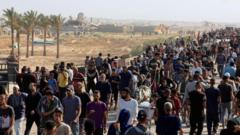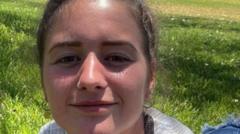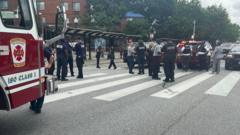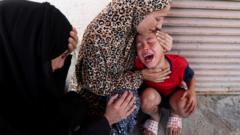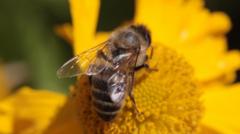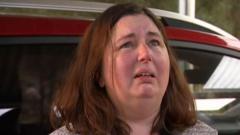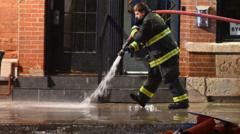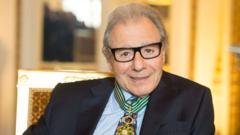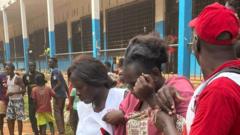Pope Francis, aged 88, remains hospitalization with severe respiratory issues, causing global concern for his health and what may follow.
**Pope Francis Faces Life-Threatening Health Challenges Amid Global Concern**

**Pope Francis Faces Life-Threatening Health Challenges Amid Global Concern**
As the Catholic community holds its breath, the Vatican reports on Pope Francis's critical health status and the implications of a potential papal transition.
In the heart of Rome, Pope Francis is battling a complex and critical health crisis that has raised alarm bells among Catholics worldwide. He is being treated for a serious lung infection that has progressed into pneumonia, compounded by mild kidney failure, as reported by the Vatican on Monday.
Francis, who is famed for his progressive stance on various issues, reportedly stabilized after a restful period, leading to prayers from cardinals who gathered at St. Peter’s Square to offer a rosary for his recovery. Medical updates indicate that while he is receiving multiple treatments, significant challenges remain in managing medication and monitoring his condition. Physicians have expressed caution regarding his prognosis given his age and pre-existing lung ailments.
Should the situation take a turn for the worse and he pass away, the Vatican has a carefully structured set of rituals to seamlessly guide the Church through this tumultuous phase. These protocols, refined over centuries, dictate that once a pope dies, the Vatican health department head and the cardinal chamberlain, acting as the Church's temporary administrator, will confirm the death. Following this, the pope's body will undergo preparations and be displayed for mourning in the pope’s private chapel.
Such transitions prompt reflections not only on the pope’s life and contributions but also on the Church's future and leadership style. CardiNeste will proceed into a conclave to elect the next pope, culminating in the historical and symbolic unveiling of white smoke signifying a new pontiff.
As the world watches and waits, the blend of tradition and modernity within the Church may again be shaped by the events surrounding Pope Francis's health, leaving an indelible mark on the future of Catholicism.
Francis, who is famed for his progressive stance on various issues, reportedly stabilized after a restful period, leading to prayers from cardinals who gathered at St. Peter’s Square to offer a rosary for his recovery. Medical updates indicate that while he is receiving multiple treatments, significant challenges remain in managing medication and monitoring his condition. Physicians have expressed caution regarding his prognosis given his age and pre-existing lung ailments.
Should the situation take a turn for the worse and he pass away, the Vatican has a carefully structured set of rituals to seamlessly guide the Church through this tumultuous phase. These protocols, refined over centuries, dictate that once a pope dies, the Vatican health department head and the cardinal chamberlain, acting as the Church's temporary administrator, will confirm the death. Following this, the pope's body will undergo preparations and be displayed for mourning in the pope’s private chapel.
Such transitions prompt reflections not only on the pope’s life and contributions but also on the Church's future and leadership style. CardiNeste will proceed into a conclave to elect the next pope, culminating in the historical and symbolic unveiling of white smoke signifying a new pontiff.
As the world watches and waits, the blend of tradition and modernity within the Church may again be shaped by the events surrounding Pope Francis's health, leaving an indelible mark on the future of Catholicism.




